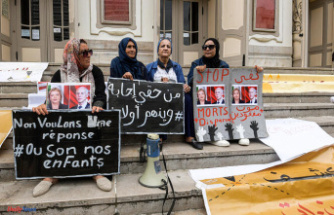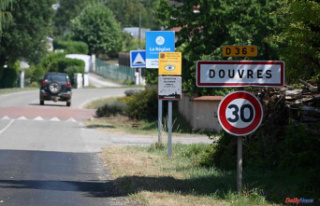On the first floor of a 16th century Strasbourg house, the rustle of cosmopolitan conversations animates the room of one of the Christian pastries, rue Mercière, opened in 1976, sixteen years after the parent company, rue de l'Outre. The wallpapers with heady floral motifs bring a hushed touch to the European exchanges that take place around the small round tables. Germanic, Italian, Swiss and French accents all have the same sweet sugary intonations. In this second address of the Meyer family, Isabelle, the daughter, cooks light dishes that leave plenty of room for the pastry conclusions now taken in hand by Christophe, the son.
But the house's real secret is its ice cream menu. From the beginning, Christian Meyer, the father, who excels in making cakes, explores the frozen territory with curiosity. In his childhood, he made ice cream by the minute thanks to bread preserved in brine (which keeps the cold). Then, when the first freezers arrived in the 1960s, he developed a mechanized manufacturing process that allowed him to have fun. He invented tea ice cream, launched into cottage cheese ice cream in the 1980s, obtained raw milk from a farmer, which he consumed in twenty-litre cans in order to use the most living ferments, and strives to use only seasonal ingredients.
The map changes according to the climate. Customers panic as autumn approaches, as they are addicted to Chasselas and walnut ice cream. The approach is visionary. Christophe perpetuates it by infusing it with his love of exoticism, which he finds a few kilometers from Strasbourg: in greenhouses that were once used to raise butterflies for collectors, one of his friends grows citrus fruits whose acidity rebalances the recipes. Further, but not too much, global warming allows a young farmer to grow apricots worthy of Roussillon. In the surrounding forest, Christophe has planted wild lemons from the Togolese forests, and he regularly goes out to pick sweet woodruff, in memory of his grandmother who revealed its taste properties to him.
When the story is so rich, the presentation must be sober. The scoops of ice cream therefore arrive lined up on minimalist glass tableware, with a simple mint leaf and a small biscuit. On this day, the season is raspberry. Tart, playful, it has a slight taste of rain. But there is also the most distant coconut whose ball is dotted with brown shards. In Togo, again, they grate the nut and dry it. Christophe roasts it in a pan, the shavings then caramelize in the natural fat of the nut which concentrates all the flavors. Its depth is lightened by the third ball, that of black lemon from Iran. Its candied acidity is nothing compared to its mysterious fragrance that leaves you speechless and makes you want to come back so as not to miss any other flavor.












